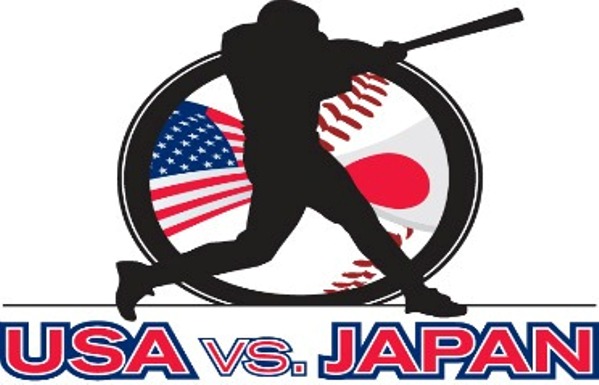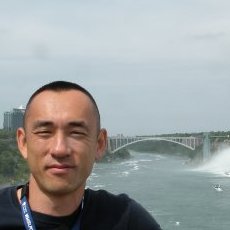Visits: 0
I recently had the honor of interviewing Takahiro Sato, a former college baseball player in Japan and has coached baseball and taught mental skills in U.S. as well as in Japan. He thought that Sport psychology was such an intriguing area where athletes can learn how to prepare for competition and how to handle pressure or stress, so he studied it & received his Ph.D. in sport psychology at the University of Tennessee in May of 2011. His goal is to help baseball players learn the mental game so that they can reach their potential.
What follows is the five questions I was able to ask Dr. Sato along with his thoughtfully in-depth answers…
1. What is the main difference in how the game of baseball is played in Japan (NPB) as opposed to how it is played in the US?
This is the most difficult question for me to answer. I would say that it depends on the manager or teams because each manager will manage a team differently depending on what style of baseball he embraces or what kind of players he has on his team…. I know that you’re probably not happy with that answer. To be honest with you, I have mixed thoughts. In general, I think that it is said that NPB is more likely to embrace “small ball” whereas MLB plays power baseball. It may be true. Japanese baseball players usually specialize in only baseball from childhood, and high school baseball is very intense especially if you choose a school with a strong baseball program (You may have heard about “Koshien”). They are very well trained with a wide variety of baseball techniques such as bunt, base-running, or tricky tactics. Thus, it is understandable that these players are still dedicated to the baseball skills they learned when they become professional players or managers.
However, we should keep in mind that any team, whether they are in MLB or NPB, have kind of a similar structure of their lineups, such as they have a few power hitters, some high average hitters, leg hitters (Speedster?), or defensive players on a team. My point is that since the structure of the lineup is similar, the game of baseball wouldn’t be so different.
I also want to point out that there have recently been some managers in MLB who had played/managed in NPB such as Charlie Manuel, Bobby Valentine, Ken Macha, Jim Tracy, and Troy Hoffman. Do you think that they managed their teams or played in MLB and NPB so differently? I think that many American players who play in NPB point out the difference of training methods, especially length of practice. They may also have pointed out the difference of baseball itself, but I think these are subtle things. I may need to research their comments about NPB more.
By the way, to my knowledge, it is said that the person who started (or made popular) small ball in NPB were the Tokyo Giants in the 1960’s. The Tokyo Giants went to Vero Beach to join the Dodgers’ spring training and were enthusiastic about learning the systematic style of baseball the Dodgers were known for, namely what is known as small ball today, such as bunting or the hit and run. Then, small ball was successfully “imported” to NPB by the Tokyo Giants which people called the “Dodgers Way” at that time. In fact, it is said the manager read the book “The Dodger way to play baseball” as a textbook (http://www.amazon.com/Dodger-Way-Play-Baseball/dp/B001AVALB6). The Tokyo Giants seemed to have successfully mastered “the Dodger Way and won the Japan Series for nine consecutive years between 1965 and 1973 & that is one of the monumental records in NPB history. However, whether or not the Tokyo Giants actually played only small ball is controversial because of the fact that the Giants had several talented hitters including two legendary power hitters, Sadaharu Oh and Shigeo Nagashima, during those outstanding nine seasons.
It is still difficult for me to reach a conclusion. Small ball looks prevalent in NPB more than MLB but it was originally introduced by a MLB team. Interestingly enough, some of the successful MLB managers that I listed earlier have actually played/managed in NPB before. It seems that they can blend the best multiple factors and optimize team chemistry to become successful. In that sense, it is hard to point out difference in the game of baseball in MLB and NPB. Sorry my answer is not very clear but hope I gave you at least some discussion questions.
2. Why do you think pitchers, especially starting pitchers, have difficulty with long-term success coming to play in the US from the NPB? Is it the length of the season, different style of play, the size difference of the ballparks (if any) or just a difference in the quality of the competition (or a mixture of it all)?
First of all, I want to make sure what the definition of long-term success is. It seems to me that being successful for a long period of time is not easy for everyone. Thus, I don’t know if only Japanese pitchers have struggled to succeed for several seasons. Second, if it is true that Japanese pitchers have difficulty with long-term success, one thing I want to point out is the age when they come to MLB. I think some pitchers started their careers in MLB when they were already in their early or mid 30’s (e.g., starters: Kenshin Kawakami, Koji Uehara; Relievers: Kaz Sasaki, Shingo Takatsu). I think that made it harder for their long-term success.
Also, one of the biggest differences a starting pitcher between MLB and NPB is the rotation cycle. They usually have to pitch every 5 games in MLB whereas they used to pitch once a week in NPB. Therefore, they have to make good physical and mental adjustments to pitch in a shorter rotation cycle. For instance, Japanese pitchers usually throw in the bullpen between outings in NPB whereas I don’t think they do so much of that in MLB. I have heard that some Japanese pitchers got nervous with “a lack” of practice. As another possibility, if Japanese pitchers pitch as many between outings in MLB as they used to in NPB, they would be exhausted. I read an article that Kuroda adjusted his style that started keeping him in physically good condition between his outings instead of pitching as much as he used to in NPB. Looking at his success in past years, he seems to have found how to survive in MLB. However, as long as I read media reports, Daisuke still stuck with what he used to do in NPB. I’m looking forward to seeing how Darvish can handle this difference. 🙂
3. Do you think Japanese position players have a better chance of long-term success playing in the US as opposed to pitchers? Why?
In my opinion, Japanese position players have more disadvantages for success in MLB than pitchers. First, the difference of physical strength (e.g. power) is huge. I know that hitting is not necessarily all about weightlifting type of power. However, the difference of power between American players (or Caribbean players) and Japanese are huge…(I can personally realize how different Americans are inherently from Japanese in terms of physical power).
Also, it is said that what Japanese position players have struggled with in MLB is the moving fast ball (e.g., cutter, two-seam fastball). I think that we haven’t seen moving fast balls until recently. For instance, when I played college baseball in 1993-1996 (I played for a big time school, and we played against some MLB players such as Hiroki Kuroda, Kenshin Kawakami, or Tadahito Iguchi, back then), I don’t think I saw these pitches in games. You might remember that Hideki Matsui was nicknamed the “Ground Ball King (or something like that”) in his first season on the Yankees. That may be a good example how Japanese players have struggled with these types of fastballs.
4. What is the biggest adjustment/obstacle for Japanese players coming to play in the US from the NPB? How can this be improved upon?
I guess that one of the biggest challenges for Japanese players would be the demanding travel schedule. I don’t know if Japanese players can imagine how tough it is to fly from the East Coast to the West Coast, cross four different time zones, considering the fact that the land of Japan is as big as the state of California. Some Japanese players may be intolerant of food. A lack of language skills may cause them not only to feel isolated from their team but also to have critical problems such as misunderstandings or a lack of communication with coaches and other teammates. These things might be a tiny stress at first, but would become more serious trouble just like a snowball effect.
As a possible solution, Japanese players may need an interpreter who is (1) knowledgeable about baseball and, ideally, an expert about training (e.g., strengthening and conditioning) or athletic training, (2) personable to smooth relationship between these Japanese players and coaches and/or other teammates, and (3) resourceful or astute to help players relieve the stress Japanese players face on and off the field. However, to be honest with you, I think Japanese players should learn English better. Looking at Shigetoshi Hasegawa, having enough language skills would reduce stress and make him easier to get along with his coaches and other teammates.
As long as I learn about Japanese players in MLB, those who are oversensitive tend to struggle more with MLB. On the other hand, those who have been successful usually don’t care about subtle difference (e.g., size or quality of baseball, mound, and so on) between MLB and NPB.
Also players’ perception might make them different. For example, there might be a difference between those who had “dreamed of” playing in the MLB and those who see MLB as just another place to pitch. The former might be overwhelmed by pressure whereas the latter can just focus on what they need to do.
5. What do you think about US players (especially former MLB players) playing in the NPB?
Looking back to the NPB history, I think that US players need to adjust more to the cultural things in general than baseball itself. It might include human relationships, food, weather (humidity back in 1990 until dome stadium became more common), language, and so on. When I remember successful American players in NPB, I don’t know if there is consistency in terms of skill levels. Some players who had been highly reputed couldn’t do well maybe because of a lack of ability to adjust to Japanese life or age issues, whereas other players did better than expected. Here are some successful American players in NPB that I randomly came up with: Randy Bass, Warren Cromartie, Bob Horner, Ken Macha, Charlie Manuel, Robert Rose, Tuffy Rhodes, Greg “Boomer” Wells, Bobby Marcano, Orestes Destrade, Leron Lee, Leon Lee, Roberto Petagine…. I know I missed many players, though… Also here are those who didn’t do so well as expected: Bill Madlock, Jr., “Pete” Incaviglia, Kevin Mitchell, Dan Miceli, Mike Greenwell. Interestingly, some players hadn’t done well in MLB but did well in NPB, and then returned to US such as Cecil Fielder. Alfonso Soriano wasn’t so impressive in NPB, but has done well in MLB.






You must be logged in to post a comment Login